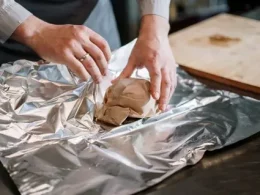First Things First: What’s HACCP, Really?
If you’re running an institutional kitchen, you’ve probably heard the term thrown around—HACCP Certification. But what does it actually mean? HACCP stands for Hazard Analysis and Critical Control Points. It’s not a buzzword or a passing trend; it’s a structured, science-based approach to identifying where food safety hazards can crop up and putting measures in place to keep them in check. The goal isn’t to react when something goes wrong—it’s to prevent it from happening in the first place.
So when someone says they’re HACCP-certified, it means they’ve built a clear, practical system to spot risks—like cross-contamination, temperature abuse, or chemical exposure—and they’ve put procedures in place to manage those risks every single day.
Why Institutional Food Services Need This More Than Anyone
Let’s not sugarcoat it. Institutional kitchens have a tougher gig than most. You’re not cooking for a dozen dinner guests—you’re feeding hundreds or thousands every day. Hospitals, schools, correctional facilities, senior living centers—these places serve vulnerable populations who can’t afford a foodborne illness. Add high-volume prep, tight budgets, and rapid staff turnover into the mix, and the margin for error shrinks fast.
HACCP Certification gives your operation the backbone it needs. It’s your structure, your checklist, your daily reminder that every step—from delivery dock to dining tray—has been carefully thought through. Without it, you’re relying on muscle memory, good intentions, and a bit of luck. That’s not enough anymore.
Okay, But What Does the Certification Actually Do?
It’s one thing to say you care about food safety. It’s another to have the receipts. That’s what HACCP Certification provides: hard evidence that your kitchen runs on more than just guesswork. Through this process, you identify the hazards at each step of food handling, define how you’ll control them, and put checks and documentation in place to prove it.
We’re talking about real systems here—critical control points (CCPs) for cooking, cooling, storing, cleaning. Defined temperature thresholds. Log sheets. Staff who know what to do, not just what to avoid. The certification confirms your kitchen doesn’t just hope for safe outcomes—it plans for them.
The Invisible Chain of Trust
Here’s the thing most people don’t realize: trust in food safety is silent until it’s broken. Diners rarely stop to thank a kitchen for holding chicken at the right temp or using color-coded cutting boards. But if something goes wrong? Suddenly, that trust is gone—and good luck getting it back.
HACCP Certification makes that trust visible. It sends a clear message to administrators, public health inspectors, and your own team: “We’ve got this covered.” It’s not about perfection; it’s about preparedness and professionalism. And in institutional kitchens, where the stakes are often higher, that reassurance is everything.
Digression Time: Remember That Norovirus Outbreak in a College Dining Hall?
Let’s pause and talk about real-world consequences. A few years back, a major university made headlines after a norovirus outbreak hit one of their dining halls. The cause? Poor sanitation and unclear cleaning protocols. Over 100 students got sick. The university faced not just public backlash but also internal audits, policy overhauls, and damage to their reputation.
Now, we can’t say HACCP Certification would’ve guaranteed a different outcome—but it would’ve helped. With clearly documented procedures, training logs, and corrective action steps, the kitchen could’ve caught the problem earlier or responded faster. That’s the difference: with HACCP, you don’t just hope people follow protocols—you ensure they’re built into the system.
It’s Not About Being Perfect—It’s About Being Prepared
Let’s be honest: no kitchen is perfect. Mistakes happen. Temperatures fluctuate. People forget steps when the rush is on. But the kitchens that survive those moments are the ones that are ready for them. That’s where HACCP Certification shines. It doesn’t expect perfection. It helps you respond fast, fix problems before they grow, and show your process can bend without breaking.
Whether it’s a surprise health inspection or a food allergy emergency, you’ll have procedures, records, and a trained team that knows what to do. It’s not about checking a box—it’s about running a kitchen that doesn’t panic when something goes sideways.
HACCP vs. “We’ve Always Done It This Way”
Old habits die hard—especially in institutional food service. Maybe your kitchen has systems built on “this is how we’ve always done it.” That can work… until it doesn’t. Legacy systems might seem safe, but without structured oversight, you’re just crossing your fingers.
HACCP Certification forces you to step back and re-evaluate those habits. Is that cooler really staying under 41°F, or do we just assume it is? Are cleaning logs actually being filled out, or is it a “when we remember” thing? Certification means questioning assumptions—and that’s how you evolve from “it’s worked so far” to “we know it works.”
Let’s Talk Buy-In: Getting the Team Onboard
Let’s be real: no food safety system works if your staff isn’t into it. You can write the world’s best HACCP plan, but if the line cooks don’t understand it or the dishwasher skips steps? It’s useless.
So how do you build buy-in? First, make it relatable. Don’t just drop policies—explain why they matter. Share stories (real ones, from your own kitchen or others). Train with context, not just instructions. And most importantly, celebrate when the system works. Recognize the cook who flagged a bad batch, or the steward who caught a temp drop.
HACCP Certification isn’t about creating a compliance culture. It’s about building a safety culture. That only happens when your team sees themselves as part of the solution.
The Paper Trail That’s Worth Its Weight in… Tomatoes?
You know those log sheets everyone hates filling out? They’re not busywork. They’re your paper trail—the backbone of your HACCP system. Every temperature check, every cleaning record, every corrective action you document becomes a piece of your safety story.
When you go through HACCP Certification, this paperwork stops feeling pointless. It becomes the proof you need when someone asks, “How do you know that meal was safe?” And more importantly, it becomes data you can use—data that helps spot trends, train staff, and prevent repeat mistakes. That’s value. That’s protection.
The Audit Doesn’t Have to Be a Nightmare
Ah, the dreaded audit. Just hearing the word can make your staff flinch. But here’s some truth: with HACCP Certification, you’re already halfway prepared. Because you’ve defined your hazards. You’ve built and documented your control points. You’ve trained your team on the “why,” not just the “how.”
So when a third-party auditor or health inspector walks in, it’s no longer a scramble. It’s a show-and-tell. Your system isn’t just in your head—it’s in your records, your process, your people. That turns audits from a source of anxiety into a moment of validation.
What’s the Process Look Like?
Getting HACCP-certified isn’t instant—but it’s not some impossible mountain either. Here’s what it generally looks like:
- Assess where you are – You take stock of your current procedures.
- Build your HACCP plan – Map your food flow, identify hazards, and outline controls.
- Train your team – Everyone learns their role in the system.
- Test the system – Run internal checks and adjust.
- Get audited – Bring in a certifying body to evaluate and approve.
The point is: you’re not reinventing the wheel. You’re formalizing what you should already be doing—then leveling it up.
So… Is It Worth It?
Let’s call it what it is: HACCP Certification takes effort. It costs time, money, and mental energy. But if you care about safety, transparency, and credibility—it’s worth every ounce of that effort.
You get more than a certificate. You get a kitchen that’s safer, smarter, and more respected. You build a team that understands their role in protecting diners. And you give decision-makers—your directors, administrators, boards—the reassurance that your operation can handle the heat, literally and figuratively.
Final Thought: Food Safety Isn’t Just Technical—It’s Personal
In your world, meals aren’t just meals. They’re fuel for healing, learning, recovery, and dignity. And behind every meal is a quiet promise: this is safe.
HACCP Certification helps you keep that promise. It’s not just about rules or regulations. It’s about integrity. It’s about standing behind your food with systems that say, “We’ve got this handled.”
Because when food safety fails, trust crumbles. But when it’s mastered? You don’t just serve meals—you serve peace of mind.












